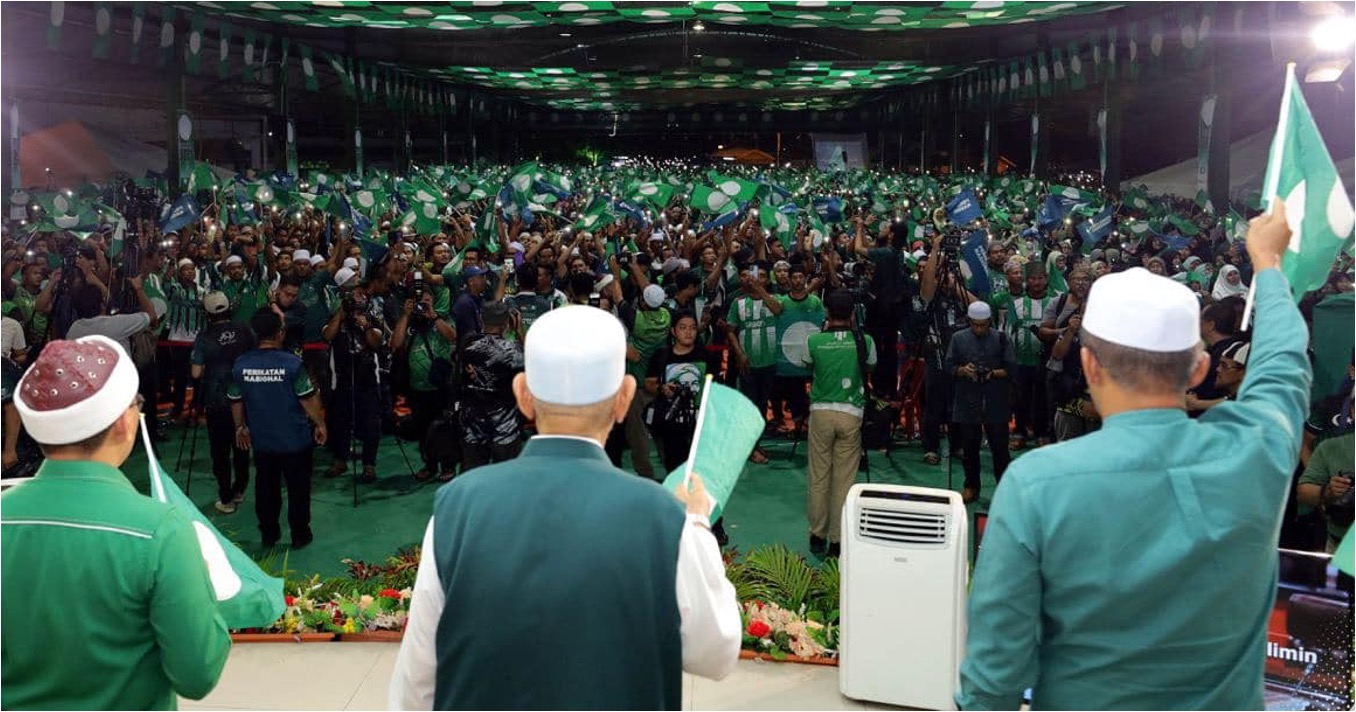COMMENTARY: Over the weekend, Malaysians went to the polls in the first state elections since the ascension of Anwar Ibrahim as Malaysia's tenth prime minister.
But while it looked like not much has changed at first glance, with no control of state governments changing hands the impact of the 2022 general election can still be felt.
James Chin, Professor of Asian Studies, University of Tasmania and Senior Fellow, Jeffrey Cheah Institute, Malaysia weighs in on the growing influence of the so-called Green Wave.
By James Chin
The six state elections held last weekend in Malaysia (Aug. 12) was really a repeat of last November’s 15th General Elections (GE15).
You cannot help but see that the broad trends were very similar. There was only one key difference, which is vote transfer.
Same-Same
The election results showed the majority of the Malay polity sided with the opposition Perikatan Nasional (PN) coalition, or the Malay-First, Islam-First parties. These are the Malay nationalists Bersatu and their ally, the Islamist PAS.
In GE15, the same happened. Rough numbers in these state elections suggest PN took about 70 per cent of the Malay votes while the Pakatan Harapan-Barisan Nasional alliance took the other 30 per cent. In GE15, the figures were about 63 per cent / 35 per cent. One could argue the ground is hardening towards the right-wing politics of PN.
The success of PAS was very evident going by the results. PAS put up 127 candidates and 105 were elected, a success rate of 82.7 per cent. Needless to say, PAS only stood candidates in Malay-majority constituencies.
Contrast this with Umno (part of BN). Umno fielded 108 candidates, again in predominantly Malay seats, and only won nineteen. A success rate of mere 17.6 per cent.
Wipeout
PN was in fact so successful in capturing the Malay vote that the state of Terengganu no longer has an opposition. PAS won the entire 32-seat state assembly.
The scale of Umno’s defeat is also reflected in the fact that, for the first time in Malaysia’s history, Umno will not have an elected state representative in Kedah or Terengganu.
Influence of TikTok
Many of the Malay youth who supported PAS in GE15 probably did the same this time around. Why? Like in GE15, PAS and PN dominated the TikTok space for these state elections.
You would have thought that the PH would have learnt from last year’s mistake and do something about the social media space but no, the clear winner in TikTok was PAS.
PN/PAS had such a simple message that it may have resonated with the Malay youth voters: "Malay and Islam are marginalised under Anwar Ibrahim. You need to support PAS to ensure Islamic dominance in Malaysia." So simple and yet so effective.
Facts do not seem to matter to certain parts of the electorate. It does not matter that under Anwar, more than 70 per cent of his cabinet members are Malay-Muslims. It is the perception that counts.
Key difference
The key difference this time was voter transfer. This is a simple concept. In GE15, Umno was fighting PH. Now they are together politically. In a perfect world, those who voted for Umno in GE15 will vote for PH and vice-versa this time around.
This did not happen.
Data suggests that the majority of Umno voters “transferred” their vote to PN because they do not like the party chief and current Deputy Prime Minister, Ahmad Zahid Hamidi, and they cannot stomach Umno working with the Chinese-based Democratic Action Party (part of PH).
Implications
The implications for Malaysia are wide-ranging.
First, it is clear the majority of the Malay polity supports the opposition PN. Anwar’s government will experience political instability because PN will use this simple narrative: "You are not a legitimate government because the majority Malays are with us, not you." This narrative alone will promote instability.
Second, any fundamental reforms to economic and social policy will now probably not go ahead or slowed down. In my view, the pro-Bumiputera policy has created distortions in the Malaysia economy and promoted inefficiencies.
With Anwar losing the Malay vote, he will not be brave politically enough to change anything. By not instituting reforms, he will hurt the economy in the long run.
Third, by not undertaking any real reforms, Anwar will probably hurt his own political base, the non-Malays in the urban areas.
Dilemma for Anwar
The Chinese and Indian support for PH is solid, as high as 90 per cent in some constituencies. They voted for PH because of DAP.
They support Anwar to bring Malaysia back to moderation and away from the extreme politics openly expressed by Abdul Hadi Awang, PAS’s president. But if Anwar adopts more pro-Malay policies, then DAP’s support base will be hurt.
Fourth, we might be seeing a permanent shift in Malay votes, i.e., Malay voters turning away from the middle ground and supporting right-wing parties such as PAS.
If this is indeed the case, then the “middle path” for multi-racial Malaysia may not be possible in the future. We can only confirm this if there is a permanent shift come GE16.
In summary, we largely saw a repeat of the "Green Wave" among Malay voters last weekend. We should not be surprised given that eight months is not long enough for Anwar’s government to show what it can do and change the voters’ mind.
In the worst-case scenario, we are seeing a permanent shift among Malay votes towards a more conservative base.
Related story:
Top image from Perikatan Nasional's Facebook page.
If you like what you read, follow us on Facebook, Instagram, Twitter and Telegram to get the latest updates.



